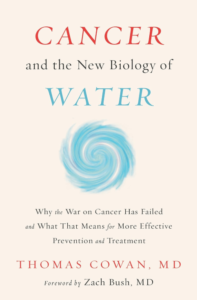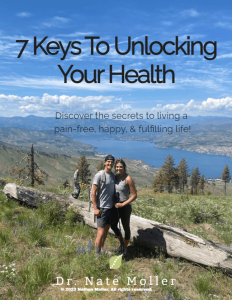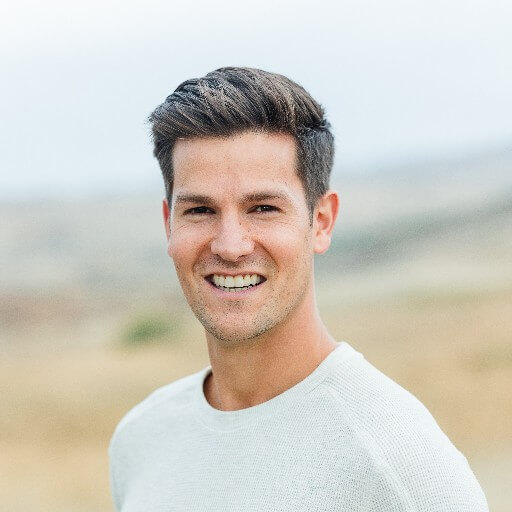
⚠️ Disclaimer:
This blog is not medical advice. Always talk with your doctor before beginning or changing any medical treatment, especially related to cancer or chronic illness. The information below is for educational purposes only and is meant to inspire deeper learning and conversation.
As a chiropractor who works with runners, nutrition clients, and everyday people trying to feel better, I’ve spent years helping others heal naturally—using real food, muscle testing, nervous system support, and movement. But over time, I’ve learned that healing is more than just adjusting the spine or fixing digestion. It’s also about navigating fear, asking better questions, and showing up for the people we love when health challenges—like cancer—turn their world upside down. That’s why I pay attention when something challenges the conventional approach and offers a new perspective worth exploring.
We’ve all watched someone we love suffer from cancer. Whether it’s a parent, a friend, or a patient—it hits hard. That’s why this subject is deeply personal to me. I’m always on the hunt for real, natural solutions that go deeper than symptom management and offer real hope for healing.
Okay. Let’s talk about a book that kind of blew my mind.
I’ve read a lot of books on cancer — from mainstream to alternative, from case studies to research papers. Cancer and the New Biology of Water by Dr. Thomas Cowan? It hit different. This isn’t just a “try this herb” or “don’t eat that” kind of book. It’s a deep dive into the very nature of what cancer is — and what it isn’t.
Why This Book Stands Out
Here’s the thing: we’ve spent billions of dollars researching cancer. We’ve poured decades of work into “finding a cure.” Yet chemo and radiation still remain the dominant tools. Cancer rates haven’t gone down. In fact, if anything, they’ve climbed.
Dr. Cowan asks a bold question: what if we’re thinking about cancer all wrong?
And that’s exactly what makes this book so intriguing.
Key Takeaways Without Giving It All Away
Dr. Cowan’s central idea is that the real issue isn’t just rogue cells. Instead, it may be related to water — specifically, the quality of water inside and around our cells. He calls this “structured water.”
Without getting too sciency on you (because yes, a few chapters get a little heady), he makes a compelling case that:
- Healthy cells need structured water to function properly
- When water becomes disordered due to toxins, stress, diet, or EMFs, the body loses regulation
- Cancer may be a symptom of this cellular breakdown, not just an isolated attack
This perspective offers a shift in how we view healing and disease.
Common Sense Meets Cutting Edge
What I appreciated most is that it’s not all “woo.”
Dr. Cowan doesn’t just speculate. He pulls in research, evidence, and challenges the conventional medical model. Some suggestions might feel progressive, or even a little “out there” for some readers. However, others are just straight-up solid health wisdom:
- A Weston A. Price-style diet
- Time in nature
- Clean water
- Specific herbal remedies
- Stress and emotional healing
- Rebuilding the terrain of the body
This holistic approach is grounded in common sense, even if some parts stretch your thinking.
It Gets Deep, But It’s Worth It
Some chapters veer into quantum biology, water physics, and intracellular dynamics. It’s dense, no doubt. However, don’t let that scare you off. If you skim when needed and focus on the big ideas, you’ll still walk away with a powerful new lens on cancer, chronic illness, and what true healing might look like.
Who Should Read This Book?
This book is for you if:
- You’re curious about the root causes of disease
- You believe there must be more than “chemo or nothing”
- You want to strengthen your body’s terrain instead of chasing symptoms
- You enjoy learning about natural healing without abandoning science
- You love books that challenge conventional wisdom
Whether you agree with every page or not, you’ll walk away thinking differently.
Want to Dive Deeper?
We’re currently reading Cancer and the New Biology of Water in our clinic’s book club. I’ll be sharing what resonated, what challenged me, and how we might apply some of the ideas in real life.
Download the Free Ebook

If you haven’t yet, grab our free 7 Keys to Unlocking Your Health eBook. It lines up perfectly with the foundational principles Dr. Cowan touches on.
Final Thought
Whether you agree with everything Dr. Cowan writes or not, one thing is clear: we need better questions. We need open-minded conversations. And we definitely need to stop doing the same thing over and over, expecting different results.
This book will challenge you. It will stretch your brain. Most of all, it will inspire you to rethink how we heal.
Let me know if you decide to read it — and come discuss it in our next book club!
—Dr. Nate
Sources
- Cowan, T. (2019). Cancer and the New Biology of Water. Chelsea Green Publishing.
- Core source for the blog post; explores structured water, intracellular coherence, and cancer from a terrain-based perspective.
- Pollack, G. H. (2013). The Fourth Phase of Water: Beyond Solid, Liquid, and Vapor. Ebner and Sons.
- Groundbreaking research on structured water (“EZ water”) in biological systems, foundational to Cowan’s argument.
- Szent-Györgyi, A. (1971). Electronic Biology and Cancer: A New Theory of Cancer. Marcel Dekker.
- Nobel Laureate’s early theory proposing that cancer is a disease of energy — not just mutated DNA.
- Weaver, C. M., & Heaney, R. P. (2006). Food Sources, Supplements, and Bioavailability of Nutrients. Elsevier.
- Supports the importance of nutrient-dense, whole-food diets (such as Weston A. Price principles) in chronic disease prevention.
- Price, W. A. (1939). Nutrition and Physical Degeneration. Paul B. Hoeber, Inc.
- Dr. Cowan frequently references Price’s work. This foundational book connects traditional diets with disease resistance and optimal physiology.
- Seyfried, T. N. (2012). Cancer as a Metabolic Disease: On the Origin, Management, and Prevention of Cancer. Wiley.
- Argues that cancer is a metabolic, mitochondrial disorder — aligns with terrain theory and some of Cowan’s views.
- McDougall, J. A., et al. (2005). “A Critical Review of the Evidence for the Role of Diet in Cancer Prevention.” Nutrition and Cancer, 53(2), 111–121.
- Reviews epidemiological links between nutrition, lifestyle, and cancer incidence.
- Hanahan, D., & Weinberg, R. A. (2011). “Hallmarks of Cancer: The Next Generation.” Cell, 144(5), 646–674.
- Standard reference for mainstream cancer biology; helps contrast the genetic model of cancer with Cowan’s terrain-based views.
- Brame, J., & Pignatello, J. J. (2019). “Emerging Contaminants in Water: New Challenges for the Environment and Human Health.” Science of the Total Environment, 646, 1632–1636.
- Discusses how water quality affects biology and supports Cowan’s concerns about environmental toxicity.
- Lindlahr, H. (1913). Nature Cure: Philosophy and Practice Based on the Unity of Disease and Cure. Nature Cure Publishing.
- One of the earliest articulations of terrain theory — a major foundation of Cowan’s paradigm.
- Gonzalez, N. J. (2012). “The Trophoblast and the Origins of Cancer: One Solution to the Medical Enigma of Our Time.” Nutrition and Metabolism Insights, 5, 7–16.
- Alternative view of cancer pathogenesis aligning with Cowan’s challenge of the mutation model.
- Béliveau, R., & Gingras, D. (2007). Foods That Fight Cancer: Preventing Cancer through Diet. DK Publishing.
- Supports use of natural foods and herbs in cancer prevention — a recurring point in Cowan’s book.
- Levy, T. E. (2017). Death by Calcium: Proof of the Toxic Effects of Dairy and Calcium Supplements. MedFox Publishing.
- Challenges mainstream nutrition; part of the ongoing conversation about rethinking modern health paradigms.
- Pischinger, A. (1991). The Extracellular Matrix and Ground Regulation. North Atlantic Books.
- Supports Cowan’s terrain-focused view by showing how connective tissue and the extracellular matrix influence cellular behavior.
- Barrett, T., et al. (2018). “The Effects of Psychological Stress on Cancer Recurrence.” Journal of Psychosomatic Research, 103, 118–126.
- Demonstrates how emotional and psychological stress influences cancer outcomes — aligned with Cowan’s mind-body emphasis.








